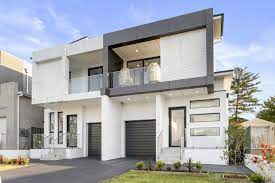Duplex homes are becoming an increasingly popular choice for homeowners looking to invest in real estate or generate rental income. In a duplex, two separate living spaces share a common wall, typically with one unit located on the ground floor and the other on the upper floor. Here’s what you need to know about duplex homes:
Benefits of Duplex Homes
One of the main benefits of a duplex home is the ability to generate rental income. By renting out one unit, homeowners can offset their mortgage payments and generate passive income. Additionally, duplex homes are typically less expensive than single-family homes, making them a more affordable option for those looking to invest in real estate.
Another benefit of a duplex home is the potential for multi-generational living. With two separate living spaces, duplexes can accommodate extended family members or provide a space for adult children or elderly parents to live independently while still being close to family.
Duplexes also offer more flexibility in terms of design and layout. While single-family homes often have a standard floor plan, duplexes can be customized to meet the needs of the homeowner or tenants.
Types of Duplex Homes
There are several types of duplex homes, each with its own unique features and benefits.
Side-by-Side Duplex: In a side-by-side duplex, the two living spaces are situated side by side, typically with a common wall between them. This type of duplex offers more privacy than other types, as each unit has its own entrance and outdoor space.
Up-and-Down Duplex: In an up-and-down duplex, one unit is located on the ground floor and the other is located on the upper floor. This type of duplex is typically less expensive to build than a side-by-side duplex, as it requires less land.
Stacked Duplex: In a stacked duplex, the two living spaces are stacked on top of each other, with one unit located above the other. This type of duplex is typically found in urban areas where space is limited.
Split-Level Duplex: In a split-level duplex, the two living spaces are situated on different levels, with each unit having its own entrance. This type of duplex is ideal for sloped or hilly lots.
Buying a Duplex Home
When buying a duplex home, it’s important to consider several factors, including:
Location: Location is key when it comes to real estate. Look for a duplex home in a desirable neighborhood with good schools, amenities, and access to transportation.
Condition: When buying a duplex, it’s important to assess the condition of the property. Look for signs of wear and tear, such as peeling paint, leaky faucets, or damaged flooring. It’s also a good idea to have a home inspection done to identify any underlying issues.
Rental Income: If you’re planning on renting out one unit of the duplex, it’s important to consider the potential rental income. Look at rental prices in the area to determine how much you can charge for rent.
Financing: Financing a duplex home is similar to financing a single-family home. However, lenders may require a larger down payment or higher credit score for a duplex home loan.
Managing a Duplex Home
Managing a duplex home can be a bit more complicated than managing a single-family home, as there are two living spaces to maintain and tenants to manage. Here are a few tips for managing a duplex home:
Screen Tenants: Screening tenants is essential for any rental property, but it’s especially important for a duplex home. Look for tenants with a good rental history, stable income, and good credit.
Maintain the Property: Regular maintenance is essential for keeping a duplex home in good condition. Schedule regular inspections and repairs to prevent major issues from occurring.
Be a Good Landlord: As a landlord, it’s important to be responsive to tenant concerns and address issues promptly. This will help to build a positive relationship with your tenants and encourage them to take good care of the property.
Set Clear Boundaries: It’s important to establish clear boundaries with your tenants to prevent issues from arising. For example, set expectations around noise levels, parking, and use of common areas.
Collect Rent On Time: Collecting rent on time is essential for maintaining a steady income stream from your duplex home. Be clear about the due date for rent and follow up promptly if payment is not received on time.
Conclusion
Duplex homes offer a range of benefits for both homeowners and tenants, including the ability to generate rental income, accommodate extended family members, and customize the living space to meet individual needs. When buying a duplex home, it’s important to consider factors such as location, condition, rental income, and financing. Managing a duplex home can be more complicated than managing a single-family home, but with the right strategies in place, it can be a lucrative investment for the long term.

